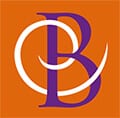Do you know your strengths? Are you aware of your weaknesses? Can you recognise your negative behaviours?
Being self-aware will improve many areas of your life. You’ll find it easier to overcome obstacles and break down barriers. Your confidence and positivity will increase. You’ll find it easier to communicate and build better personal and professional relationships.
The importance of self-awareness
In life
Understanding how you react to different stresses, what makes you happy and what is important to you will help you achieve the life you want.
Identifying your core values will help you realise what is important to you and what causes conflict. Knowing what triggers negative behaviour and understanding the reason for it, will make it easier to manage.
In relationships
You are a vital part of every relationship you are in, so understanding what you offer and what you need from a relationship is important. Every relationship should provide value to both parties, otherwise, you could be letting the people around you hold you back.
You should be able to identify negative behaviours to ensure that you aren’t sabotaging your relationships. Understanding what type of personality you have, and recognising how it complements or conflicts with other personality types will help you create more positive relationships.
In business
Not everyone works in the same way and you need to recognise that this is a good thing. Someone who is good at coming up with ideas may not be good at the implementation, whereas someone else might excel at carrying out the detailed work. You need a mix of these types of people to make a teamwork. It’s important to understand each other’s strengths and weaknesses.
This must begin with you. What type of personality do you have? How do you work? Which personality types will complement yours and which will conflict with you? If you know where the conflicts will be within your team you can manage this more effectively and build better business relationships.
What you need to know
Take some time to sit and think about the following areas and write down your answers. This will help you see things more clearly. Be as honest as possible, nobody else ever needs to see your answers.
- What are your goals in life and business
- What personality traits do you value most highly in yourself? (Honesty, loyalty, fun, ambition)
- What personality traits do you value most highly in others? (Your partner, friends, colleagues/employees)
- What things are most important to you? (Family, friends, job, nice home, expensive car)
- What makes you happy? (Money, love, travel, food)
- What makes you angry? (Betrayal, failure, dishonesty, greed)
- What are your fears/what causes you anxiety? (Public speaking, failing, disappointing people, being alone)
- What are your worst traits? (Impatience, procrastination, arrogance, low self-esteem)
- Which area of your life would you like to improve most? (Romantic, career, financial, health, social life, work-life balance)
- How do other people view you compared to how you view yourself?
Answering these questions will help you build a clearer picture of yourself and understand why you react to certain things in certain ways.
If you want deeper insight, then a personality test can give you some clarity. These can be very useful as they help you understand how you interact with other people and where your strengths and weaknesses lie.
DISC profiling
DISC is a personality profiling system that helps us to better understand our behaviours. The DISC profiling system groups together behavioural characteristics into four personality styles.
- D=Dominance ‘D’ style people are assertive, driven and self-confident.
- I= Influence ‘I’ style people are enthusiastic, optimistic and good communicators.
- S=Steadiness ‘S’ style people are calm, practical and good at listening.
- C=Conscientious ‘C’ style people are more reserved, precise and cautious.
You may display all these behaviours, but you’ll probably display them in varying degrees.
Myers-Briggs
The Myers-Briggs Type Indicator (MBTI) is an assessment to determine what type of personality you have. It is designed to measure your psychological preferences and identify how you perceive things and make decisions. There are 16 types of personality made up of four letters; one from each of the following categories:
- Energy: Extraverted (E) or Introverted (I)
- Perception: Sensing (S) or Intuition (N)
- Processing: Thinking (T) or Feeling (F)
- Judgement: Judging (J) or Perceiving (P)
How self-aware are you?
If you want to succeed in life and business, then you need to be self-aware. Self-awareness improves relationships and allows you to identify areas where you need to develop skills, confidence or knowledge. If you feel that you have lost your sense of self or want help improving the way you interact with others, I can help.
I have been fully trained to carry out comprehensive DISC assessments and interpret the results. Once you have completed the assessment, I can explain the outcome and help you identify your strengths and weaknesses. We will also understand the best learning styles for you and develop your communication skills.
Whatever area of your life you want to improve, I can help you understand what steps you need to take.
Contact me today if you want to improve your self-awareness and be more successful in life and business.

